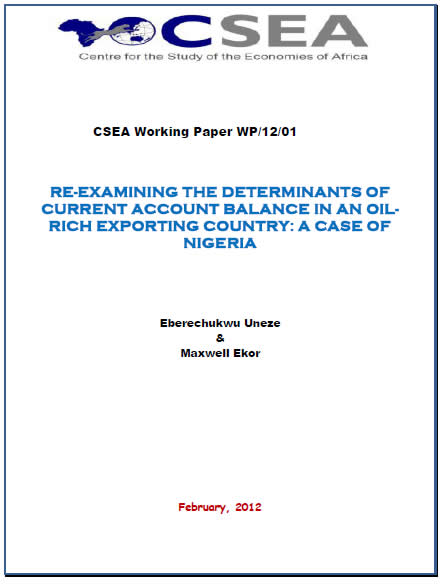Author:Eberechukwu Unezeand Maxwell EKOR
Publication Date:February, 2012
JEL Classification: F30, F32, F41
Keywords: Nigeria, current account; time series; saving & investment; Oil
This paper examines the determinants of current accounts balance in Nigeria with emphasis on oil-related variables, using the Johansen-Julius VAR co-integration estimation, the impulse response function and the variance decomposition analysis. The results show that oil price, oil balance and oil revenue are positively related with the current account, with only oil wealth having a significant negative impact in the long-run. We find that the impact of oil price on the current balance is only significant in the short-run. The variance decomposition analysis indicates that the variance in the current account is better explained by own shocks followed by shocks to oil price, oil balance and fiscal balance.

